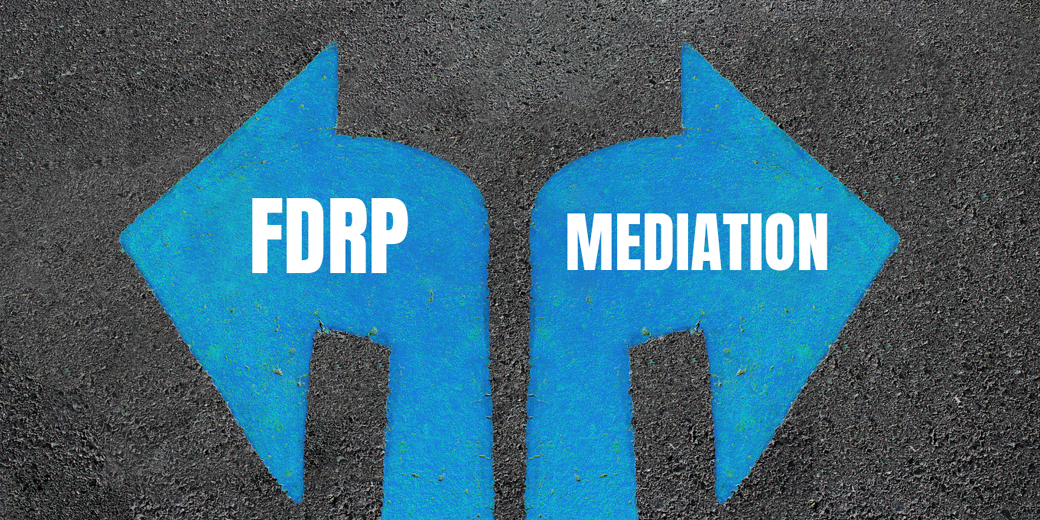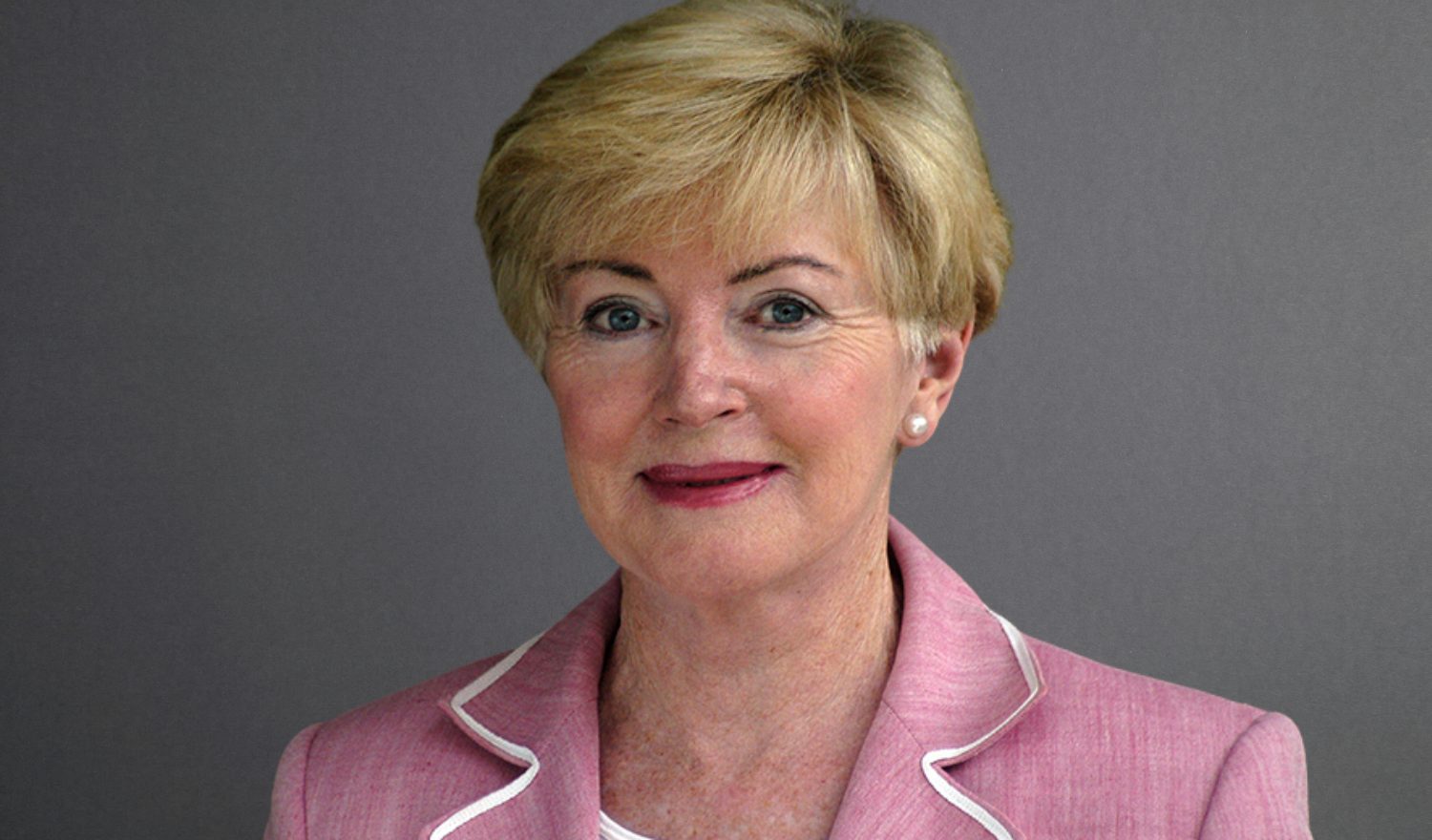Considering a career in dispute resolution? You’re onto something.
Helping people find resolutions to their problems – strategically and cost-effectively – is stimulating and rewarding work.
But how do you get into the field?
There are several different pathways available to you, each requiring specific training and experience. Here, we’ll take a closer look at two different specialisms: mediation and family dispute resolution.
We sat down with Linda Kochanski, Practice Leader for Dispute Resolution Programs at the College of Law, to get her insights.
First, what is mediation?
Mediation is a process used to resolve disputes or conflicts between two or more parties.
An impartial third party – the mediator – helps the two sides communicate, negotiate and find a solution that works for everyone involved.
‘Mediation is used as an alternative to litigation in various contexts, including workplace conflicts, business disagreements and civil disputes,’ begins Linda.
‘The mediator doesn’t make decisions for the parties – they’re there to empower them to reach their own agreement by facilitating discussion, helping each other identify their concerns and assisting them in coming up with resolutions.’
Though some mediators work in law, you’ll also find them in HR, education, business, government, social work and many other fields.
So what's FDRP?
FDR stands for Family Dispute Resolution.
FDR is a more specialised form of mediation in which people in a family dispute, such as a separation or divorce, meet with a mediator to try and resolve their issues without going to court.
In this context, the mediator is called a Family Dispute Resolution Practitioner (FDRP).
‘The practitioner helps families discuss their problems, understand each other's viewpoints and develop solutions regarding child custody, money and property,’ explains Linda.
FDRPs come from a variety of backgrounds, including law, social work and psychology.
How to determine which pathway is right for you
Choosing the right path will require thorough research and careful consideration of your personal skills, passions and career goals.
Start by assessing your interests and values – the kind of impact you want to make and the environments you want to work in.
‘Are you passionate about helping families navigate challenging circumstances? Then FDRP could be the right path for you,’ says Linda. ‘In that case, you’ll need to complete FDRP training to gain a deeper understanding of family law.
‘If you’d prefer to use your mediation skills in a variety of contexts, then train as a general mediator. Mediator training will help you learn the essential mediation and conflict resolution techniques that can be applied more broadly in conflict situations.’
The length, style and cost of each training program may prove a deciding factor for you. With that in mind, let’s look at the qualifications you’ll need to get accredited in each profession.
National Mediator Accreditation Training: NMAS / AMDRAS
To become an accredited mediator in Australia, you’ll need to complete a mediator training program called NMAS (AMDRAS after May 2025).
‘NMAS is ideal for anyone wishing to add mediation to their skillset,’ explains Linda. ‘You don’t need a bachelor’s degree or any specific professional experience to apply, though some training providers have their own prerequisites for enrolment.’
During your training, you’ll learn the fundamental principles of mediation, including impartiality and confidentiality, as well as a range of conflict resolution and negotiation strategies. You’ll also explore the ethical standards and legal frameworks integral to mediation.
NMAS courses will help you develop practical mediation skills – usually through role-plays, simulations and case studies – with regular feedback from experienced mediators.
You can complete NMAS training with any Recognised Mediator Accreditation Body (RMAB), whether it be a training provider, college, university or professional association.
And the course will last anywhere from a week to one semester, depending on your provider.
Once you’ve completed the NMAS course and passed an assessment, you’ll be eligible to become an accredited mediator. You’ll then have six months to apply. After that, your accreditation will be valid for 2 years. And it’s your responsibility to keep up your mediation practice over that period.
Visit the Australian Mediator and Dispute Resolution Accreditation Standards (AMDRAS) website to learn more about becoming a mediator.
‘It’s worth noting that the Mediator Standards Board is implementing changes to the training and assessment criteria for mediators, which will come into effect in some states over the next year,’ adds Linda.
‘When these changes occur, NMAS programs will be referred to as AMDRAS. But these changes will not affect students enrolling in NMAS within the next year, who will still be able to apply for accreditation after completing the existing course.’
Becoming an FDRP: Graduate Diploma of Family Dispute Resolution Practice
Though FDRPs are a kind of mediator, they need a more specialised understanding of family law and an appreciation of the nuances and complexities of family dynamics.
As such, to become an FDRP, you must complete either:
- A Graduate Diploma of Family Dispute Resolution Practice (GFDRP) as a minimum – or
- A Master of Laws (Applied Law) majoring in Family Dispute Resolution Practice (if you like to take it even further)
So, what are the prerequisites for entry into the graduate diploma?
‘You usually need a bachelor's degree in a relevant subject such as law, social work or psychology,’ explains Linda.
If that doesn’t apply to you, you can still apply for entry if you’ve completed your:
- NMAS (as a bonus, your NMAS qualification will entitle you to one subject credit towards your GDFDRP with the College of Law)
- Mediation skill set from the Community Services Training Package (CHC)
During your graduate diploma, you’ll learn the skills and techniques integral to mediation – many of which are taught in the NMAS course. But you’ll also delve into the theory and legislation specific to family disputes, including:
- Family law and legislation
- Child welfare and development
- Domestic violence and child safety concerns
- Cultural competency and complex family dynamics
Visit the Attorney General’s Department website to learn more about becoming an FDRP.
Weighing up your options: a quick snapshot
Take the time to familiarise yourself with the different courses and what each will require of you. Below, we’ve compiled the key features of each qualification into a handy comparison table.
|
|
Mediation |
FDRP |
|
Type of qualification |
Short course / Professional qualification |
Graduate Diploma |
|
Duration |
Training course: 5 days Assessment: 2 days |
Around 7 months |
|
Cost (at the College of Law) |
$4,190 including assessment |
$20,750 for the Graduate Diploma |
|
Entry |
None |
Either a bachelor’s degree in a related field, an NMAS qualification or experience in a relevant field |
|
Teaching |
Covers key theoretical concepts with practical role plays and simulations |
Examines academic theory and research in more depth |
Linda’s final word of advice
Ultimately, your decision hinges on your passions, goals and readiness for the journey ahead.
‘If you have a genuine interest in family dynamics or work in a related field, such as family law, social work or child welfare, FDRP is a natural progression,’ says Linda. ‘But if you want flexibility in how you apply your mediation skills, NMAS offers a broader pathway.’
Still unsure – but just want to get going?
‘Start with the NMAS,’ advises Linda. ‘This training lays the groundwork for FDRP work and will help you figure out whether dispute resolution is right for you. In short, NMAS can help you test the waters before committing to the more intensive (and expensive) FDRP program.’
Whether you opt for the versatile pathways of NMAS or the specialised realm of FDRP, you’re sure to find yourself in a stimulating and fulfilling career.






























![How to handle Direct Speech after Gan v Xie [2023] NSWCA 163](https://images4.cmp.optimizely.com/assets/Lawyer+Up+direct+speech+in+drafting+NSW+legislation+OCT232.jpg/Zz1hNDU4YzQyMjQzNzkxMWVmYjFlNGY2ODk3ZWMxNzE0Mw==)





















































